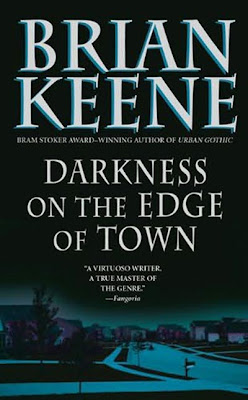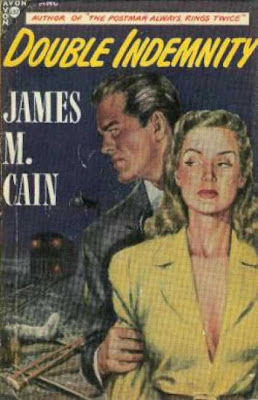
As you can infer from the picture, I've fallen into my usual trap of reading several books at once.
That's not even all of them. I'm 50 pages into a novel called The Graphologist's Apprentice, I'm skimming a couple of scriptwriting references, &... um, that actually is all of them, if you count those.
Sean raises a really interesting point (in his comment on the Kindle post), which I'd like take up – as much as I trashed Darkness on the Edge of Town, as much as it deserved to be trashed, there is a certain pleasure to be found in reading through a bad book, & feeling “smugly superior & kind of dirty” afterwards.
Partially this is the phenomenon of the throw-away book, discussed previously.
Partially this is the feel-good factor, as a writer, of reading something inherently flawed. Skimming back over the past couple months' reading, I mean OK I haven't been churning through great, lofty works of literature, but books like The Book of Skulls, The Remains of the Day & Double Indemnity are stone-cold classics of their genres. I take a lot of inspiration from good fiction, but it's also daunting.
I know that Silverberg, Ishiguro & Cain didn't appear out of nowhere, riding a sea shell across the Mediterranean. Silverberg probably wrote a ton of hack sci fi, Ishiguro probably wrote awkward & self-important lit student stuff (maybe he even wrote some student poetry!). Cain probably worked as a journalist & wrestled alligators for decade or two – actually wait, I know what Cain did, he was a mostly-unproduced Hollywood screenwriter. Ha ha ha. Awesome.
Having said that, when you read something that's widely seen as a masterpiece, & rightly so, it can be kind of depressing. The distance between your own abilities & those of the guys you're reading seems huge. Insurmountable.
You can use all sorts of strategies to talk yourself out of this funk. You can think: Shit, these guys get paid to work on their writing full-time, year after year. Once/if I make it, I'll have the freedom to concentrate on my work like they do.

Or: I have my own thing going on. I bet Knut fucking Hamsun would have more trouble writing my stuff, than I'd have writing his. I'm REAL. I'm the... the voice of the streets!
Or: Maybe I AM this good, & I just don't REALISE it! I should call up a well-meaning friend & bully some compliments out of them.
Or, most poisonously: Well, I'm not as good, but that's OK. Maybe I don't need to be that good to get by.
One of the simplest & most persuasive strategies is to read some bad writing, i.e. someone who's worse than you. The ideal characteristics, for me, of a feel-good bad book are:
- it's been published & has sold well
- it's a genre or field that I write in, or would like to
- it's actually bad. Which is to say it's not The Da Vinci Code bad, where it's very stupid but also slickly written, but it's proper actual “I don't know what I'm doing here” bad.
But the all time best feel-good bad book is the one that's:
- written by one of your favourite authors.
I cannot describe the joy I felt when I read Interzone, which is a collection of early (pre-Junkie) writing by William S. Burroughs. It wasn't a terrible book, but it was kind of off-kilter and trying too hard. It felt like something a friend might have brought to my writer's group back in the day – like something I might have brought along. I almost cried. 'Cos, like, I really do want to be Burroughs when I grow up (except straight & better-adjusted).
So I'll re-formulate my verdict on Darkness on the Edge of Town as follows: if you're not interested in horror, this will confirm everything you suspected about the genre. If you are interested in horror, like if you write horror, then give this a quick read. This guy actually won the Bram Stoker Award, though admittedly not for this book. Wow. It also clarifies the amount of skill that goes into those cheesy King stories like "The Mist" or Needful Things, where an entire town gets attacked or destroyed by something. It's not as easy as it looks, apparently.
If anyone else can recommend some terrible works by great authors let me know. I'm particularly interested in terrible early works by great authors.







